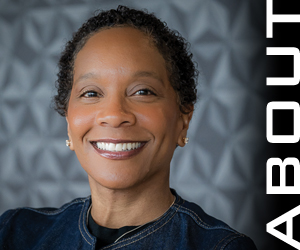Evolving Accountant | Summer 2024
New CPA Exam Aims to Bring More Than a Test to the Profession
With recent exam changes, the profession can anticipate a new breed of CPAs who are poised to drive innovation and efficiency across the industry.

Andrea Wright, CPA
Partner, Johnson Lambert LLP
Trends in Accounting, Auditing, and Consulting
Passing the CPA exam is a crucial milestone for anyone aiming to enter the accounting profession. As of Jan. 1, 2024, the exam has been thoroughly updated to a core-plus-discipline model, reflecting the dynamic shifts within the accounting landscape and the need for modern competencies and technological skills in today’s workplace.
UNPACKING THE NEW CPA EXAM SECTIONS
One of the most exciting updates to the CPA exam is the introduction of specialized disciplines. Although CPA exam candidates are still required to take the three core exam sections (auditing and attestation, financial accounting and reporting, and taxation and regulation), candidates can now choose from one of three new specialized disciplines for their fourth section. These include:
1. Business analysis and reporting: Reflecting on the strategic role that CPAs play, this segment evaluates the ability to consider business operations and financial reports. This section focuses on financial statement analysis, performance metrics, and comprehensive reporting—both financial and nonfinancial. Candidates must demonstrate not only their analytical capabilities but also their effectiveness in communicating these insights to stakeholders—all crucial for informed decision-making and risk management.
2. Information systems and controls: In an era where technology is pivotal, this section assesses knowledge surrounding information systems and the necessary controls to protect assets. Covering cybersecurity, data governance, and financial information integrity, this part ensures that CPAs are well-prepared to oversee and audit the technological frameworks that underpin all facets of accounting operations.
3. Tax compliance and planning: This section delves into the critical area of taxation, stressing not just the understanding of tax laws but also the strategic application of tax compliance and planning. During the exam, candidates will face scenarios that challenge their proficiency in applying tax regulations across different contexts—individual, corporate, and international. This segment is designed to equip CPAs with the skills necessary to navigate the complexities of tax obligations, while maximizing benefits and strategically aligning with financial planning and business strategies.
WHY THESE CHANGES MATTER
The new disciplines create a flexible structure that’ll significantly benefit candidates by allowing them to tailor their learning paths to better suit their career goals—making studying for the exam more relevant and engaging.
Additionally, the inclusion of the new disciplines directly responds to the evolving role of accountants in business settings. By broadening the exam to encompass these essential areas, the AICPA aimed to equip CPAs with broad and relevant skill sets. For students, this new format allows them to adopt an interdisciplinary approach in their studies, integrating traditional accounting knowledge with strategic, technological, and regulatory insights.
I think these enhancements not only expand the CPA credential’s scope but also elevate the profession’s standards, integrating CPAs more deeply into the strategic, operational, and technological fabric of modern businesses.
IMPLICATIONS FOR PROSPECTIVE CPAS
In a decisive move to support candidates during the transition to the new exam format, all jurisdictions have agreed to a credit extension policy as of Dec. 19, 2023. This policy grants an 18-month extension for unexpired credits from previous exam sections, extending the deadline to pass remaining sections until June 30, 2025. This ensures candidates have ample opportunity to complete their certification without penalty during the transition period. Additionally, the National Association of State Boards of Accountancy recommends that states adopt a 30-month timeline to pass the exam going forward and advises candidates to monitor for updates from their state boards.
The exam changes have prompted major exam preparation organizations to overhaul their review courses, as candidates will have to adapt their preparation strategies to cover more technologically inclined content and ensure proficiency in both core accounting principles and relevant tech applications. Additionally, candidates should be cognizant of the longer waiting periods between score releases. The first grading period in 2024 is substantially longer for each exam section because the content has never been tested before.
ADVICE FOR CPA CANDIDATES
If you’re just beginning your CPA journey or are feeling overwhelmed by the prospect of starting under the new system, don’t forget to tap into your network! Engaging with classmates, colleagues, mentors, online forums, and professional associations (like the Illinois CPA Society) can be incredibly beneficial. Sharing strategies and experiences, or simply discussing how to overcome challenges, can help relieve the stress that comes with such a rigorous testing process. Drawing on the support and advice from those who understand the journey can also be instrumental in building your confidence and guiding you through the complexities of preparing for and passing the CPA exam.
Despite the challenges, it’s important for CPA candidates to remain committed to developing the essential skills needed to stay current with the rapidly changing accounting sector. After all, adapting to new learning styles and materials on the fly, although daunting, is crucial for aligning with the industry’s evolving demands, and it’ll make you more resilient to other challenges in the long run.
The recent changes to the CPA exam have become about more than just passing a test—these reforms aim to shape the future of accounting, ensuring it remains relevant and proactive in an ever-evolving business world.
This column was co-authored with Jake Sulaski, audit associate at Johnson Lambert LLP.Related Content:
- Building a Stronger CPA Pipeline: The journey to CPA licensure has never been easy. A recent legislative change requiring fewer credit hours to sit for the CPA exam in Illinois could help change that, as stakeholders across the profession work to build a better, stronger CPA pipeline.
- How to Teach and Engage the iGeneration: Whether you call them the iGen, post-millennials, or Gen Z, shaping the talent of this generation is critical to the accounting and finance profession’s future.